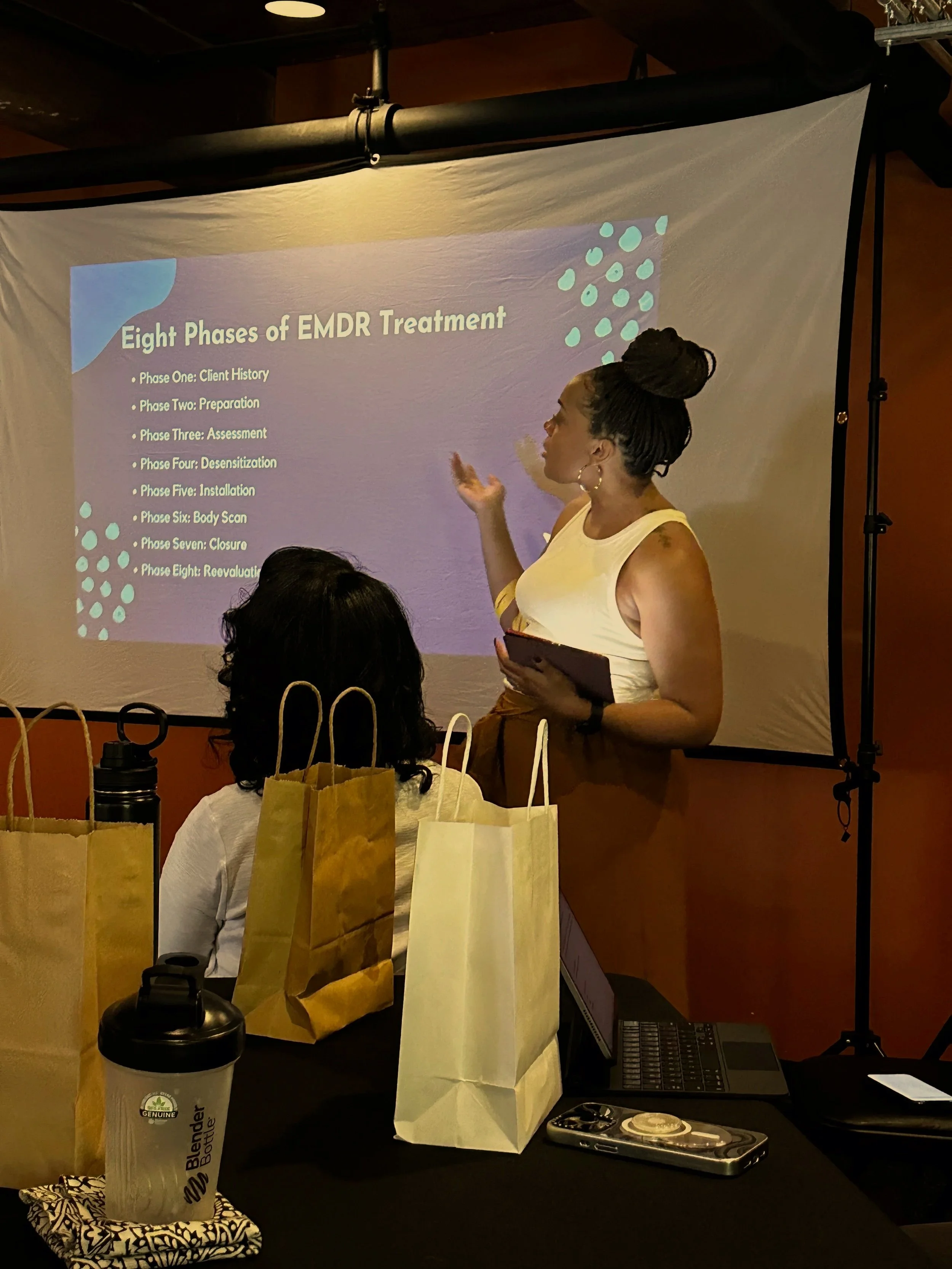
Eye Movement Desensitization and Reprocessing (EMDR)
EMDR therapy offers a gentle, evidence-based way to process painful experiences and find lasting relief.
What is EMDR Therapy?
Eye Movement Desensitization and Reprocessing (EMDR) is a specialized form of therapy that helps people heal from difficult or traumatic experiences. Instead of reliving the pain, EMDR works by helping your brain process and release what’s been stuck—so you can move forward with greater ease and peace of mind.

How EMDR Can Support You
EMDR can be especially helpful if you’ve experienced trauma, anxiety, or negative self-beliefs that feel hard to shake.
Gets to the Root. Helps you process the deeper causes of distress, not just manage symptoms.
Supports Many Needs. Effective for PTSD, anxiety, depression, phobias, and more.
Works Alongside Other Care. Can be used on its own or combined with other therapies or medication.
Backed by Research. An evidence-based approach supported by years of clinical studies.
Brings You Back to Now. Helps you feel safer and more present while releasing the hold of the past.
Often Short-Term. For many people, healing can begin in just a handful of sessions.
What to Expect in EMDR Sessions
EMDR sessions move at your pace and focus on what feels most important to you. Using gentle, structured techniques, we work together to help your brain reprocess painful memories in a safe and supportive way. The goal isn’t to relive the past, but to release its weight and build healthier beliefs so you can move forward with greater ease.
How do I know EMDR is right for me?
-
While it’s highly effective for PTSD, EMDR can also support healing from anxiety, depression, grief, phobias, and other challenges tied to past experiences.
-
If you find yourself triggered by past experiences, feeling anxious or overwhelmed in the present, or stuck in repeating patterns, EMDR may be a helpful next step.
-
EMDR can stand alone or complement other therapy approaches, making it flexible if you’re working on both trauma and broader goals like self-growth or relationship health.

Take a Step Toward Healing
EMDR (Eye Movement Desensitization and Reprocessing) intensive therapy typically involves multiple sessions of EMDR over several consecutive days. The intensive format allows for more rapid progress and can be helpful for those who are struggling with symptoms or have not responded to traditional weekly therapy. During the sessions, clients are guided through bilateral stimulation (e.g. eye movements, tapping, or auditory tones) while focusing on the traumatic memory or negative belief. This process helps to desensitize the emotional intensity of the memory and reprocess it in a way that reduces its impact on the person's life. I will also work with you to develop coping skills and resources to manage any distress that may arise during the process.




